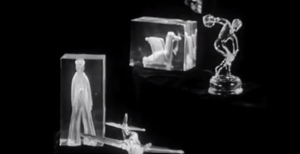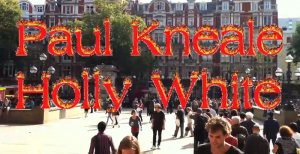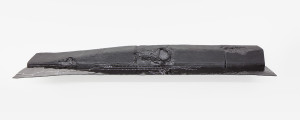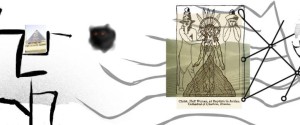The monthly club night Urban Mutations, run by DJs MFK & WEN, offers – according to their description – “engaging, multi-stylistic club music”, which can be heard live at the Paloma Bar and other venues in Berlin (on bills with the likes of DJ Rashad, Zebra Katz, Death Grips or Bok Bok), as well as online, via Berlin Community Radio. The idea of Urban Mutations evolved from nights the DJs used to host at Neukölln’s O-Tannenbaum and Times, and was designed as a bass music counterbalance to the predominantly techno-oriented club scene that Berlin has traditionally been associated with. That said, the DJs declare that they don’t actually mind techno (their sets occasionally wandering into its territories) but from their perspective the scene felt too monochromatic, hence the birth of Urban Mutations, which embodies the notion of enriching Berlin nightlife with the plurality of bass music’s transfigurations.
The sonic experience is interesting enough – perfectly tailored to the needs of the dance floor (the imaginary dance floor in one’s own head counts here too), a varied, relentlessly pulsating collation of the numerous metamorphoses that contemporary bass offers, from juke and post-house to avant-tinged, future-RnB. And yet, what take Urban Mutations from comprehensive to outstanding are its links to the visual/multimedia movement commonly referred to as ‘post-Internet’. This nebulous interdisciplinary category is a product of (and commentary on) online experience as part of daily participation in culture and creativity; as critic Gene McHugh states, post-Internet is “(…)inherently informed by ubiquitous authorship, the development of attention as currency, the collapse of physical space in networked culture, and the infinite reproducibility and mutability of digital materials”.
Parallels between the mutability and flux of post-Internet art and the elusive, interdisciplinary nature of contemporary bass music caught MFK and WEN’s attention; as a result, their club events and Urban Mutations’ online presence gained an optical dimension provided by the likes of Katja Novitskova and Harm van der Dorpel. The latter is responsible for VJ-ing as well as visual identity for the nights – digital sculptures that have as much in common with avant-garde jewellery or imaginary scientific devices as they do with software logos. These forms, which – typically for post-Internet art – blur the boundaries between on and offline, also exist in 3D versions, displayed in London’s Wilkinson Gallery.
The resultant, pooled audio-visual experience seems a convincing, semi-synesthetic translation of sound into vision and its inverse; as such (‘mutations’ is the keyword, after all), it embodies the seamless shape-shifting displayed both by contemporary multimedia art and the abundant, fluid genres broadly described as “bass”. Both are extremely elusive; coursing in various directions, reciprocally feeding and capriciously morphing rather than clearly developing from point A to point B, which makes them as difficult to map as they are fascinating to explore. **
Header image: Harm van den Dorpel



















